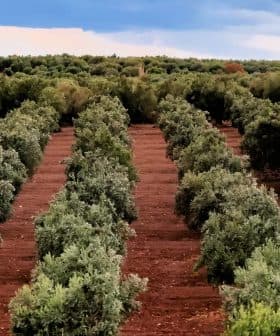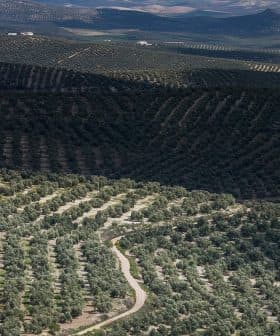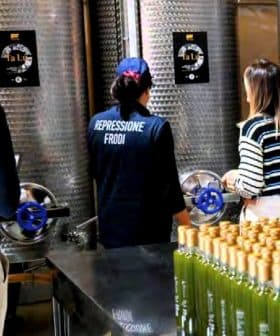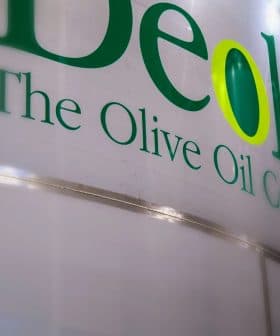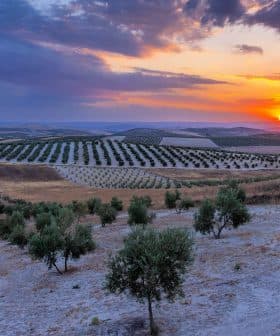Major Spanish Cooperative Under Fire for Importing and Exporting Practices
Dcoop faces a €2.8 million fine from the Spanish authorities as well as scrutiny from the rest of the sector for what are seen as anti-competitive market practices.
Spain’s largest olive oil cooperative, Dcoop, is facing criticism and a €2.81 million fine for importing olive oil from Tunisia and Morocco without paying import tariffs, blending it with Spanish oil, and selling it in the United States as Spanish olive oil under the Pompeian brand. Critics fear that these practices could harm the Spanish olive oil sector, lead to unfair competition, and potentially incur tariffs from the U.S. government.
Spain’s largest olive oil cooperative continues to come under fire for its importing practices in the aftermath of a €2.81 million ($3.29 million) fine levied by the Spanish tax authorities.
A message is sent to the consumer that it is a product that does not have that value and that quality for which we are committed.
The fine originates from outstanding import tariffs that Qorteba International failed to pay on olive oil it had imported from Tunisia and Morocco. The company had originally sought an exemption for paying these tariffs, but their request was denied.
Fifty percent of Qorteba is indirectly owned by Dcoop, which has said it will take responsibility for the fines and expenses incurred by litigating them.
Once the imported oil arrived in Spain, Dcoop blended it with oil from its member companies, then repackaged the blend as Spanish olive oil before it was exported to the United States under the Pompeian brand.
In documents reviewed by El Economista, which originally broke the story, the Spanish Customs Agency wrote that it had detected “a problem in the analysis of some oils.”
Indeed, inspectors graded the oil being imported from North Africa as “lampante” before it was blended with “low quality” Spanish olive oil that had been obtained in second extractions from olives used in the production of extra virgin olive oil.
This blend was then sold as virgin olive oil in the United States at prices 40 percent lower than other Spanish and Italian olive oil and up to 100 percent lower than olive oils from California.
In a statement, Dcoop rejected the claim that it was being fined for “importing olive oil from Tunisia that does not meet the required quality standards and then selling it in the United States as if it were Spanish oil.”
Through a spokesperson, Dcoop also downplayed the importance of the issue, denying that they were trying to subvert the market by selling adulterated olive oil.
“At [the cooperative’s] last general meeting, the issue did not even come up,” the spokesperson said. “We are not interested in lowering the price, that goes against the spirit of a cooperative.”
Dcoop’s director, Antonio Luque, went one step further. He denied that the oil was adulterated at all and cast aspersions on the sensory tasting methods used in the determination.
“The same inspector has come to establish different qualities in the oil of the same batch,” he told El Economista.
Luque added that other prominent members of the sector, including the National Association of Industrial Packers and Edible Oil Refiners (ANIERAC) and the Spanish Association of the Olive Oil Exporting Industry and Commerce (ASOLIVA), had also questioned the ability of tasting panels to consistently identify olive oil grades.
However, this argument has left many prominent members of the sector unconvinced that the practices of Luque and Dcoop are harming the Spanish olive oil sector.
Cristóbal Cano, the secretary general of the Union of Small Farmers and Ranchers (UPA) condemned Dcoop, labeling their practices as “very dangerous” and worried that episodes such as this one might “trivialize” the value of Spanish olive oil.
“In addition, a message is sent to the consumer that it is a product that does not have that value and that quality for which we are committed,” he said. “Gaining short-term market shares and low prices is but little bread for today and assures you hunger for tomorrow, we must bet on quality at a reasonable price because we have seen in recent years how the market responds.”
Juan Luis Ávila, the head of COAG Jaén, also condemned Dcoop for their actions, arguing that undermining the price of competing Spanish olive oil would hurt the whole sector by cutting profit margins for farmers and leading to increasingly unfair business practices.
“Cooperatives must have as an absolute priority that the farmer receives a fair payment that happens to take into account competition in the market,” he said. “But cooperatives must also respect competing olive growers by ensuring there is a sensible price of origin [from olive oils made in Spain] and that this price at least covers their production costs too.”
Other critics of Dcoop fear that episodes such as this one will incur the ire of U.S. President Donald Trump, who has already imposed tariffs on Spanish olives. They worry, though they have no evidence to back these concerns, that tariffs on Spanish olive oil could be coming as a result of these kinds of stories.
Cano addressed these concerns indirectly, stating that Dcoop must own up to what it has done and that the whole sector must work together moving forward in order to protect their overriding interests.
“In the end, these fines affect the partners and the entire sector,” Cano said. “There must be those who demand responsibility from their leaders and ask themselves whether these practices really advocate for the general interest of the sector or seek particular interests that have nothing to do with its future on the whole.”


